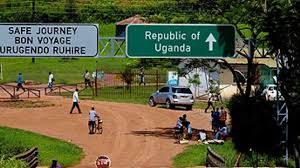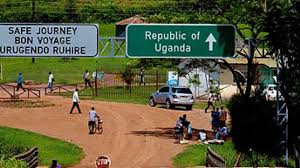Rwanda secretly opens border

By Drone Writer
News streaming in reveal that Rwanda has secretly opened the border with Uganda, after numbers of those that have tested positive in response to coronavirus hits 90.
Rwanda closed her border with Uganda early February 2019. Uganda and Rwanda’s relationship hit a worrying low when Kigali closed its main border with its neighbour.
This move was the culmination of rising animosity over a few years then. Rwanda accused Uganda of sheltering its dissidents, some of whom it had allegedly forcibly repatriated in the past.
On the other hand, Uganda accused Rwanda of planting spies in its security apparatus several of whom it claimed to have arrested or deported.
These tensions were reflected in the war of words that erupted between the two presidents. “You can attempt to destabilize our country, you can do us harm, you can shoot me with a gun and kill me. But there is one thing that is impossible,” the Rwanda’s President Paul Kagame at a government retreat reportedly said. “No one can bring me to my knees.”
President Yoweri Museveni similarly declared: “Those who want to destabilize our country do not know our capacity. It is very big. Once we mobilize, you can’t survive.”
A year ago, Ugandan trucks were reportedly stopped to border points, leading Uganda to advise traders to transit to Rwanda via the Democratic Republic of Congo (DRC), but weeks later, crossings came to almost complete halt. Rwanda shut the border and advised its citizens not to travel to Uganda for safety reasons.
This dramatic move created huge disruptions to cross-border trade and people’s lives on both sides. Many Rwandans depend on Uganda for food and medicines, for example, while cargo porters and currency traders’ livelihoods were put on hold.
Following the initial closure, some Rwandans continued to sneak into Uganda by crossing the rivers at Gatuna and Mukensiyoona, but Rwandan authorities destroyed those bridges.
The two countries never showed signs that they were able to break the impasse or resolve their differences. When Rwandan authorities criticized their counterparts for detaining Rwandans, for example, the Ugandan government simply refuted the claim, leading to a further entrenchment of their positions.
It became certain that Uganda was busy with a counterintelligence operation for the past two years. These efforts led to the arrest of senior Uganda security officers including former chief of police General Kale Kayihura.
The once highly-influential head of police was arrested in June, 2019 and charged with aiding and abetting the forced repatriation of Rwandan nationals along with nine others.
Several other agents allegedly acting on behalf of Rwandan intelligence were secretly arrested and expelled. They were accused of being members of a network of sleeper cells conducting covert, surveillance, kidnappings and assassinations of political dissidents.
This so-called “clean-up” of alleged Rwandan agents was extended to the top executives of the leading telecommunications company MTN.
The Ugandan government deported Annie Tabura, a prominent Rwandan executive working for MTN Uganda, for allegedly compromising national security. It also expelled foreign nationals Olivier Prentour, Elsa Mussolini, and MTN Uganda CEO Wim Vanhelleputte, on similar grounds.
Following these deportations, government-leaning media platforms speculated that Tabura and her colleagues had been deported because they had paid off Rwandan spies in Uganda using MTN’s mobile payment system. The Ugandan government further accused MTN officials of engaging in alleged espionage activities by wire-tapping top officials’ telephone conversations.
Rwanda hit back, accusing Uganda of having removed several Rwandan citizens under questionable circumstances. “I have written to the Ugandan government and asked why they are deporting Rwandans,” said Rwanda’s High Commissioner Maj Gen Frank Mugambage. “I have not got any answer,” he is quoted to have revealed.

